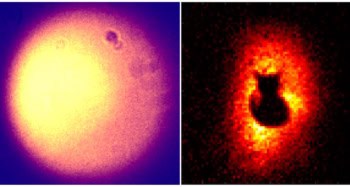Masako Yamada is the director of applications at IonQ, a global quantum-computing company headquartered in the US that develops quantum systems designed to solve complex problems. Prior to her current role, Yamada worked at GE Research for 20 years, and she holds a PhD in physics from Boston University.

What skills do you use every day in your job?
The quantum-computing industry is a dynamic, fast-moving space, and I find myself using a mix of different skills to manage the personnel and technical aspects of my job.
As part of my daily role at IonQ, I manage a team of applications researchers – both scientists and engineers – and ensure that everyone’s work contributes to our goal of developing impactful quantum applications for quantum computers. Our work is truly multidisciplinary, and involves sales, products, marketing, operations, and even legal and finance. Our success depends on me clearly communicating with team members, clients and leadership; fostering a culture of collaboration across functions; and making time for one-to-one sessions to brainstorm ideas, offer feedback or even exchange a joke or two.
I’m also responsible for bringing to the table novel technical problems that either our company or our customers are looking to solve. With quantum, the challenge is not so much solving the problem but defining the problem. To do this I have to think outside the box and lean on a creative and diverse team.
What do you like best and least about your job?
The things I like most about my job are how truly disruptive quantum systems are becoming, and the wealth of talented people I get to meet and work with.
I came to IonQ from GE Research, where for more than two decades I led teams focused on fields like experimental optics, high-performance computing and industrial AI. Growing up within a company like GE was amazing, but I felt that at IonQ I could make a greater proportional impact. IonQ is a growing company in an exploding field, and rubbing shoulders with some of the pioneers in the space probably feels a bit like working with Thomas Edison when he was founding GE. I interviewed a candidate last week for a position at IonQ and in his follow-up email, he wrote, “I can tell you love what you do.” That was the best compliment.
As for the most challenging thing about my job, I’d have to say it’s the speed of innovation. Whereas other technologies have had decades to establish their foothold upon which future developments could be built, quantum computing is still fairly new – we’re basically trying to crawl, run and fly at the same time. It can be difficult work, but I’m excited to be part of a company like IonQ that has steadily kept to product roadmaps and business objectives, heading towards mass-producing scalable, commercial quantum systems.
What do you know today that you wish you knew when you were starting out in your career?
There’s a common misconception that once you get a PhD in something, that’s it – you’ll be defined by that one topic. I wish I had known back when I was first starting my career that this is simply not the case. People can always reinvent themselves as they enter a new domain, as long as they are in a culture that embraces a growth mindset, and individuals take every opportunity to learn.
My PhD was in high-performance computing and materials modelling, but when I joined GE Research after graduate school, I set aside those interests to work in experimental optics, as that’s where the need was at the time. My boss trusted that I would learn quickly, and I did. It wasn’t until a decade later, when I moved to the advanced computing group, that I was able to revisit those early interests. I even got to run simulations on the world’s most powerful computer systems at Oak Ridge National Laboratory. Fast forward to where I am today, my role at IonQ would never have existed had I and everyone at the company not believed in our capability to reinvent ourselves to pursue this burgeoning field of quantum computing.



